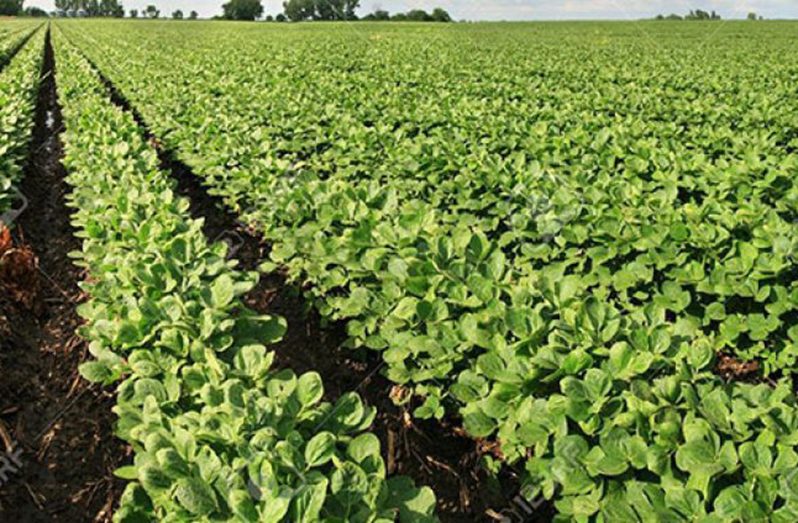President Ali tells Caribbean leaders, says enhancing productivity in agriculture, food production requires technology
THE lack of access to nutritious foods has been a persistent problem not only in the Caribbean but around the world.
At a discussion for Caribbean leaders on Tuesday, President, Dr. Irfaan Ali and several other officials discussed their views and insights on food insecurity in the Caribbean.
Approaching the issue head-on, the President, who has been championing efforts to improve regional food security, said that at least US$7.5 billion in investments would be required for the region to achieve its ‘25 by 2025’ target in a very conservative manner. The initiative entails lowering the region’s larger food-import bill by 25 per cent by 2025.
According to Dr. Ali, it is crucial for leaders to prioritise agriculture and food production in order to take the Caribbean where it wants to be.
The President spoke on a variety of strategic measures to help Guyana become self-sufficient in food production and a net exporter of food in the region. He also addressed the path towards achieving the Sustainable Development Goal (SDG) of ending hunger.
“Now on a global scale, if we are to achieve the SDG two… productivity must increase by 28 per cent” he added, noting that this goal requires the employment and utilisation of technology.
President Ali said Guyana has already started taking steps to enhance productivity and increase production, including working closely with other Caribbean nations to develop innovative plans to increase food production. Among the initiatives rolled out so far is the new aquaculture project geared at increasing the production of prawns and tilapia.
And although there have been successes, President Ali related that there are sufficient studies on the region to inform decisions made by financial institutions such as the World Bank to take action and work alongside Caribbean nations to eliminate food insecurity.
INCREASING PRODUCTION AND IMPROVING PRODUCTIVITY
According to the President: “We took a full analysis of every single country, looked at the competitive environment in every country and we sought to identify low hanging fruits, medium term strategies and long term strategies.”
The reason for this is not only to eliminate hunger, but to also refocus food production and agriculture as serious economic activities while dealing with different obstacles and constraints that impact the sector.
“If you look at some of the recent headlines on food security in the region, it’s a really a telling story,” Dr. Ali said, noting: “It is important for us to know that if we don’t take action now — and we are taking action— and we don’t make the necessary adjustments in our budgetary allocation for agriculture and food production, and prioritise agriculture we are going to face a catastrophe in the region.”
Those actions must be supported by technology so as to create an agriculture sector that is climate resilient.



.jpg)











